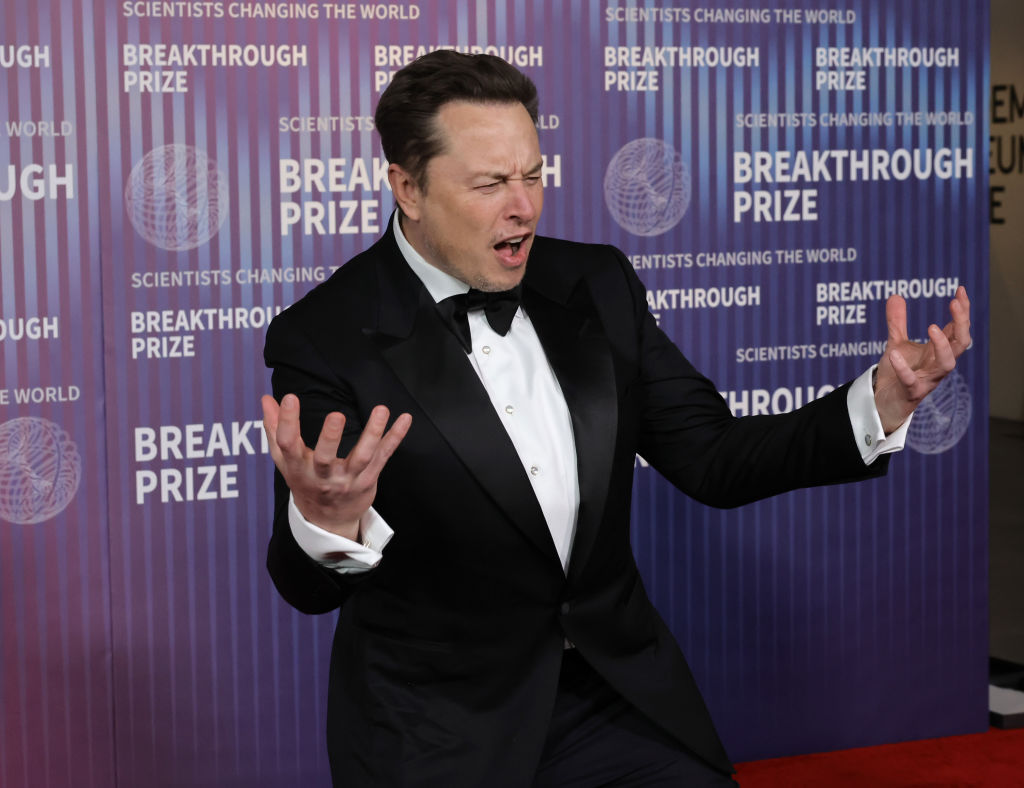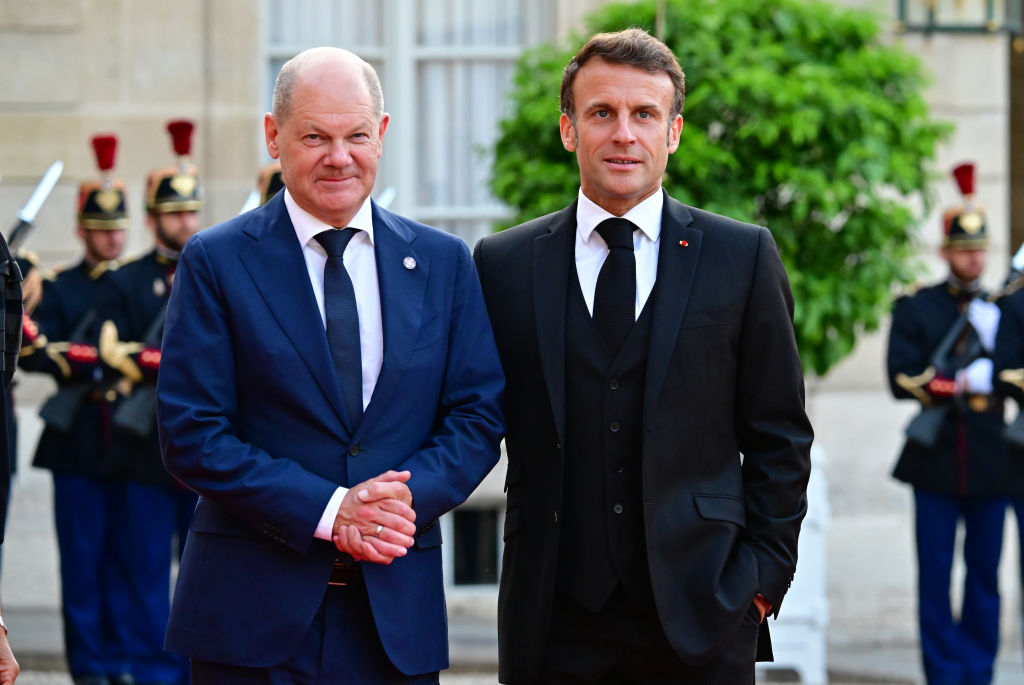Having famously saved the rickety euro from the international bond markets over a decade ago, Super Mario Draghi has now moved on to an even grander project: rescuing the EU from its own internal contradictions and an increasingly hostile international environment.
His ambitious plans, hatched behind closed doors with senior European Commission functionaries, include calls for financial support for emerging industrial sectors such as AI and biotech, an easing of competition rules to permit the emergence of European industrial champions, the consolidation of European defence industries, and perhaps most bullishly, the replacement of the United States as Europe’s security guarantor.
None of this will come cheaply. The price tag: €800bn a year, or put another way, an annual repetition of the NextGenerationEU pandemic cash splurge. (NextGenerationEU is the word the commission made up to express a “once in a lifetime chance to emerge stronger from the pandemic, transform our economies and societies, and design a Europe that works for everyone.” Oh, okay.)
Unfortunately for the union, this sum cannot be hidden on the European Central Bank’s balance sheet as were the “whatever it takes” bond purchases that saved the euro. Under current European Union financing rules, this money must come from member states, who are not flush with cash, and are already facing expensive new EU commitments.
Integrating candidate members in the Balkans and Ukraine will require the recapitalization of regional development funds, and a potential explosion in agricultural subsidies. The wealthy core of the union is already beleaguered fiscally. France is broke and struggling to contain a soaring deficit. Germany, the once reliable piggy bank for the EU, is caught between its self-imposed debt brake and a constitutional court ruling severely limiting the transfer of excess funds to other projects. Economics minister Christian Lindner took time out from the gruesome budget battles with his coalition partners in Berlin to level a flat rejection of additional funding for Draghi’s plans.
Absent new cash from strapped member state budgets, Draghi may be planning to use the precedent of NextGenerationEU pandemic funding and have the EU borrow more money directly. Although the NextGen fund was agreed as a one time deal to be wound down by 2026, its appeal and utility to the EU is obvious. For member states labouring to contain their deficits, EU borrowing is the ultimate “off balance sheet” spending, absent from their national deficit calculations and posing only an indirect obligation on their future spending obligations.
However, the EU has yet to determine exactly how the current €800bn NextGen loans are to be serviced and eventually repaid. It will be difficult to extract the funds from the EU’s next seven year budget, which is already struggling to meet existing obligations. Ideally, the EU would dun its taxpayers directly in the form of “own resources,” eurospeak for granting the commission direct taxing authority over the €19tr EU economy. An EU tax line on paycheques, sales receipts or financial transactions across the union would give Eurobonds instant credibility as an alternative to US Treasuries. As desirable as that may be in the corridors of the Berlaymont, getting such a dramatic policy change through the European Council would be no sure thing, and would likely consume all of Ursula von der Leyen’s second term political capital.
Obscured by the budgetary hurdles facing Draghi’s project are the dramatic geopolitical implications. The EU would abandon its traditional free trade orthodoxies in favour of protections intended to create European champions capable of competing with their Chinese and American counterparts. Never again would Margrethe Vestager, the commissioner for competition, block the creation of a European rail equipment giant. Europe’s internal market would be a protected redoubt where profits earned by domestic firms would allow them to compete globally, with EU R&D funding available to boost innovation.
That is the theory anyway. In practice, a protected European market for favoured industries could insulate them from the need to compete with global leaders. As we have seen in the past few months, it is easier to ask the EU for protection from China’s BYD than it is to build competitive electric cars. Draghi’s plan provides no easy remedies for a German economy grown fat on car exports once China learned all it needed from Wolfsburg and now floods Europe with cheap autos. Walling off the EU economy from China offers Germany only a stagnant, saturated market for its exports. European consumers would pay a premium for second rate cars, hardly a recipe for competitive innovation or robust consumer spending.
Draghi’s call for the consolidation of European defence industries and a commitment to joint procurement backed by EU funds poses an even sharper potential shock. EU governments would equip their militaries exclusively with European hardware, meaning Dassault, Leonardo and Rheinmetall rather than Lockheed, Raytheon or General Dynamics. Whether this would offer good value or even capable weapons is unclear: the examples of the Tiger attack helicopter or Puma fighting vehicle loom large.
The likely reciprocal loss of the giant American defence market would be worth it to EU defence contractors only if aggregate European defence spending rivalled the Pentagon’s budget, something that would drive joint EU borrowing to politically unsustainable levels. A decoupling of European and US defence budgets would likely make Europe responsible for its own security by default rather than by design: the exclusion of US firms from European defence contracting would ensure a diminishing US commitment to NATO. A prospective loss of the American nuclear guarantee would not be easily replaced. France considers its nuclear arsenal part of its national patrimony and would be unlikely to offer it in defence of Estonia, Ukraine, or even Germany. How many European armoured divisions would be needed to offset the loss of an American tripwire and its nuclear guarantee? Only the Kremlin knows for sure.
What we see at the heart of Draghi’s program is nothing less than a “Europe First” agenda comparable to the strategic visions embraced by President Xi Jinping and Donald Trump. Perhaps this is intentional, and the sign of an acceptance that the world is devolving into regional trade and defence blocs, who must compete as modern mercantilists rather than rule-bound free traders. China has clearly decided to compensate for its faltering domestic demand by firing up its export machine and beggaring foreign competitors. A second Trump presidency would favour US jobs over WTO rules and corporate profits earned from cheap foreign labour. Super Mario is no fool. He may be preparing for the end of the Davos era when Europe must protect its security and economy alone. Whether 27 member states can agree on his analysis or his proposed remedies remains to be seen.





Auto worker ‘peasants’ may force Volkswagen to stay in Germany, downplay China